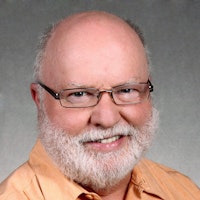Your True Self is Life and Being and Love. Love is what you were made for and love is who you are.
Richard Rohr

Your True Self
Topic: Self-Cultivation & Health
Your True Self is Life and Being and Love. Love is what you were made for and love is who you are. When you live outside of Love, you are not living from your true Being or with full consciousness.
Richard Rohr, OFM, born in 1943 in Kansas, is a renowned American Franciscan priest and celebrated writer on spirituality, presently based in Albuquerque, New Mexico. Ordained in the Roman Catholic Church in 1970, Rohr embarked on a spiritual journey that has since garnered widespread attention and respect. By 2011, PBS had recognized him as "one of the most popular spirituality authors and speakers in the world," a testament to his influential presence in contemporary spiritual discourse.
In his pursuit of spiritual growth and community building, Rohr has achieved noteworthy milestones. He attained his Master of Theology degree from the University of Dayton in 1970. The subsequent year saw him founding the New Jerusalem Community in Cincinnati, Ohio. But perhaps his most enduring legacy stems from establishing the Center for Action and Contemplation (CAC) in Albuquerque, New Mexico, in 1986. Here, he has diligently served as the founding director and academic dean of the Living School for Action and Contemplation. Rohr's teachings, embodied in the school's curriculum, revolve around seven themes explored deeply in his book, "Yes, And."
Rohr's contributions to Christian spirituality, while transformative for many, have occasionally faced scrutiny and opposition, especially from certain conservative Catholic factions. These groups have sometimes critiqued his interpretations and teachings as diverging from traditional Catholic orthodoxy. In this context, a defining moment in his career was his meeting with Pope Francis, who gave a heartfelt endorsement to Rohr's book, "The Universal Christ." This endorsement can be viewed as a significant vindication of Rohr's teachings. It not only bridged potential theological divides but also highlighted Rohr's influential and valued position within the broader spectrum of Christian thought and practice.
Rohr, Richard. Immortal Diamond: The Search for Our True Self. Jossey-Bass, 2013.

Richard Rohr
Theme: Being in Self

About This Richard Rohr Quotation [Commentary]
Richard Rohr writes, “Your True Self is Life and Being and Love. Love is what you were made for and love is who you are.” These words do not describe an ideal to reach, but a truth to remember. The True Self is not shaped by effort or success; it is who you already are—created in Love, sustained by Love, and expressing Love. Rohr’s use of “Life and Being and Love” places the True Self within the deepest layers of existence. Love is not a role to play or an emotion to cultivate; it is the foundation of identity.
Rohr continues, “When you live outside of Love, you are not living from your true Being or with full consciousness.” Here he links love with both identity and awareness. To live without love is to live without clarity. The Self becomes obscured when we live from fear, separation, or the surface of personality. Rohr does not frame this as a moral failure but as a loss of alignment with “true Being.” Full consciousness, in his view, arises when we live from the core—where love is not added on but revealed.
This teaching reflects the theme of being in Self. Rohr insists that “Love is who you are,” and to live from any other place is to live apart from both self and Source. The True Self, he teaches, is not earned or created through practice; it is “your Absolute Identity,” present before any right or wrong action. The role of religion, he says, is to lead us to a regular experience of this reality—of who we are in God and who God is in us. When we remember this, love becomes the atmosphere of our Being, not an aspiration but a return.
Experiencing the True Self [Commentary by Richard Rohr]
Your True Self is who you objectively are from the moment of your creation in the mind and heart of God, “the face you had before you were born,” as the Zen masters put it. It’s who you were before you did anything right or anything wrong, or made any decisions for good or ill. It is your Substantial Self, your Absolute Identity, your Anchored Self, which can be neither gained nor lost by any technique, group affiliation, morality, or formula whatsoever.
The only and single purpose of religion is to lead you to a regular experience of this True Self. Every sacrament, every Bible, every church service, every song, every bit of ministry or ceremony or liturgy is for one purpose: to allow you to experience your True Self-who you are in God and who God is in you (see John 14-17). If it fails to do this, it is junk religion.
Only healthy and mature religion is prepared to point you beyond the merely psychological self to the cosmic, universal, and God Self. Only great religion is prepared to realign, re-heal, reconnect, and reposition you inside the family of all things. That is why I cannot give up on religion, as unhealthy as it often is. It is still the full conveyor belt that includes all stages and can even forgive and include the mistakes of every stage.
—Rohr, Richard. Just This. CAC Publishing, 2017, pp. 88-89.
Resources
Related Quotes
Copyright © 2017 – 2026 LuminaryQuotes.com About Us